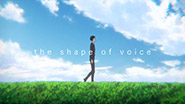 |
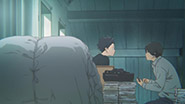 |
 |
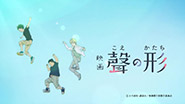 |
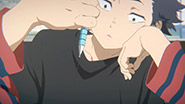 |
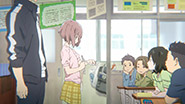 |
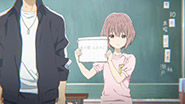 |
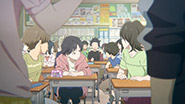 |
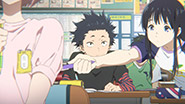 |
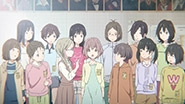 |
 |
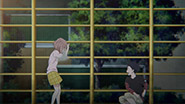 |
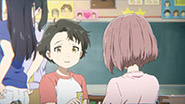 |
 |
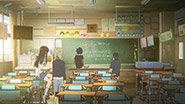 |
 |
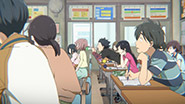 |
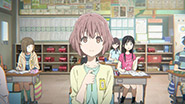 |
 |
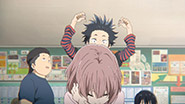 |
 |
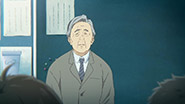 |
 |
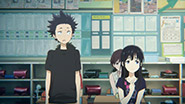 |
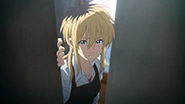 |
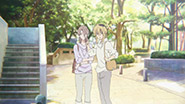 |
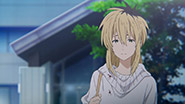 |
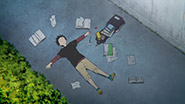 |
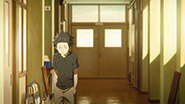 |
 |
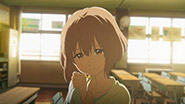 |
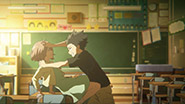 |
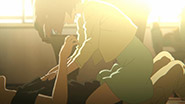 |
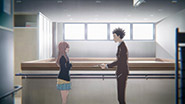 |
 |
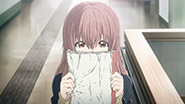 |
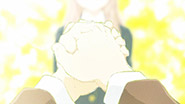 |
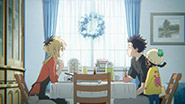 |
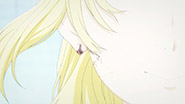 |
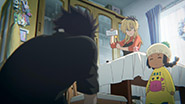 |
 |
 |
 |
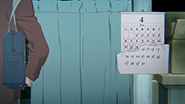 |
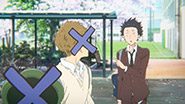 |
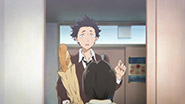 |
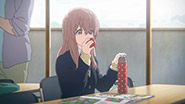 |
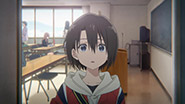 |
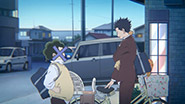 |
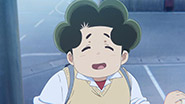 |
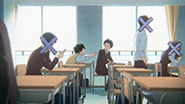 |
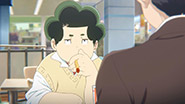 |
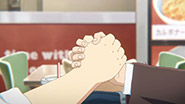 |
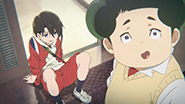 |
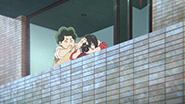 |
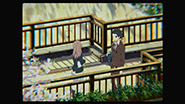 |
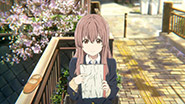 |
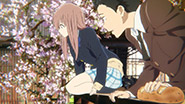 |
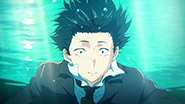 |
 |
 |
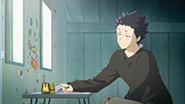 |
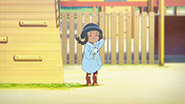 |
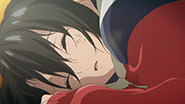 |
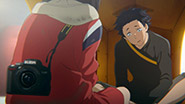 |
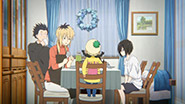 |
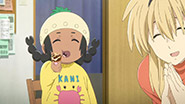 |
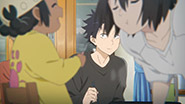 |
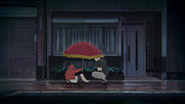 |
 |
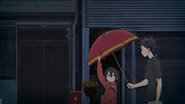 |
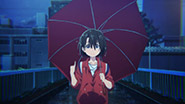 |
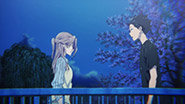 |
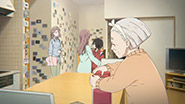 |
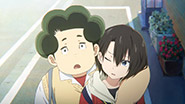 |
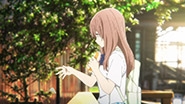 |
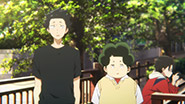 |
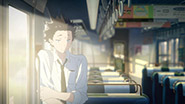 |
 |
 |
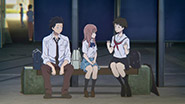 |
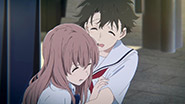 |
 |
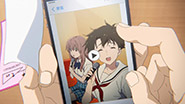 |
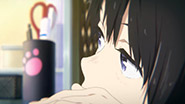 |
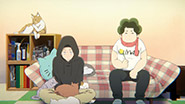 |
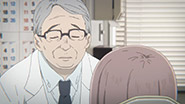 |
 |
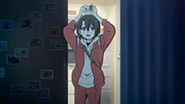 |
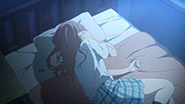 |
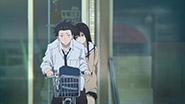 |
 |
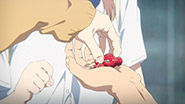 |
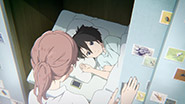 |
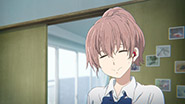 |
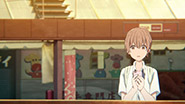 |
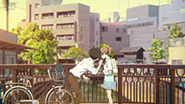 |
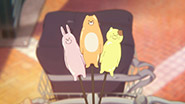 |
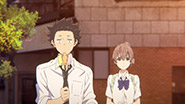 |
 |
 |
 |
 |
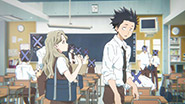 |
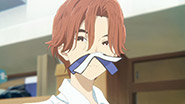 |
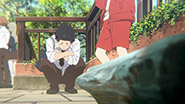 |
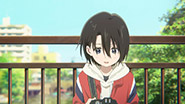 |
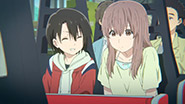 |
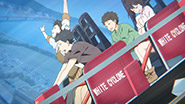 |
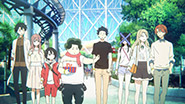 |
 |
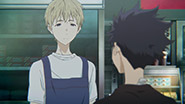 |
 |
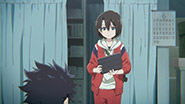 |
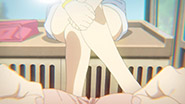 |
 |
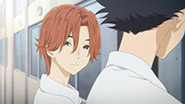 |
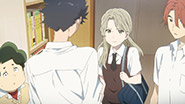 |
 |
 |
 |
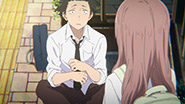 |
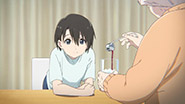 |
 |
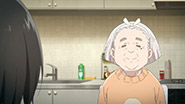 |
 |
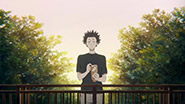 |
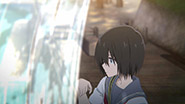 |
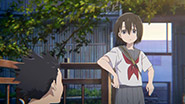 |
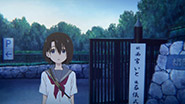 |
 |
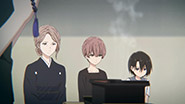 |
 |
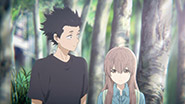 |
 |
 |
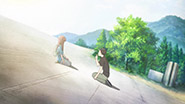 |
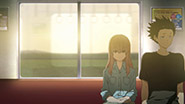 |
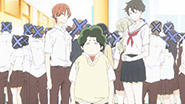 |
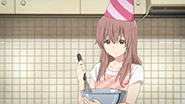 |
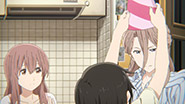 |
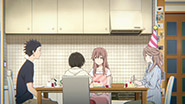 |
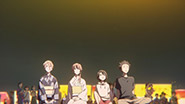 |
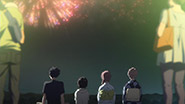 |
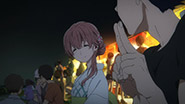 |
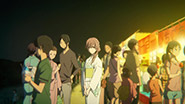 |
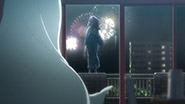 |
 |
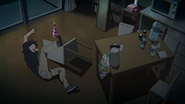 |
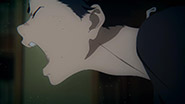 |
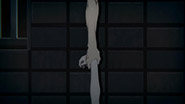 |
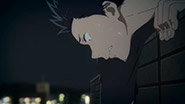 |
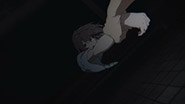 |
 |
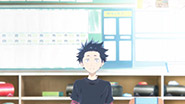 |
 |
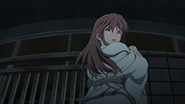 |
 |
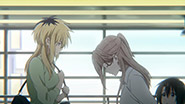 |
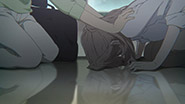 |
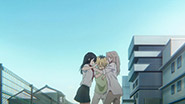 |
 |
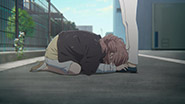 |
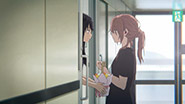 |
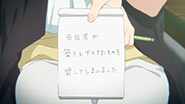 |
 |
 |
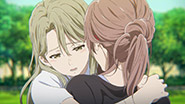 |
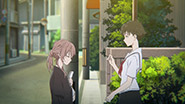 |
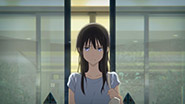 |
 |
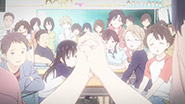 |
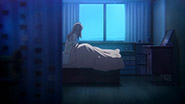 |
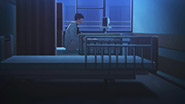 |
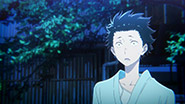 |
 |
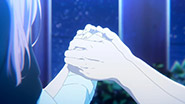 |
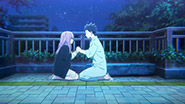 |
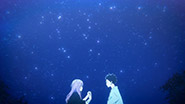 |
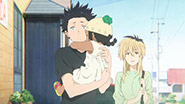 |
 |
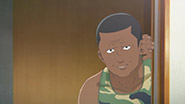 |
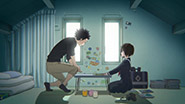 |
 |
 |
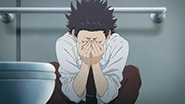 |
 |
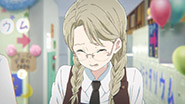 |
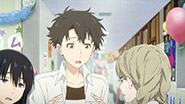 |
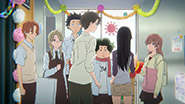 |
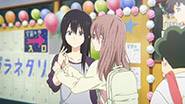 |
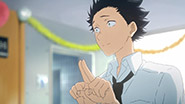 |
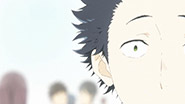 |
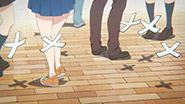 |
 |
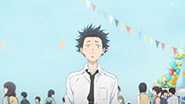 |
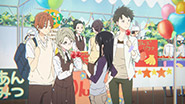 |
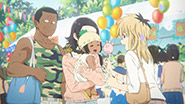 |
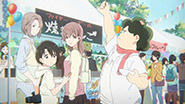 |
 |
「聲の形」 (Koe no Katachi)
“The Shape of Voice | A Silent Voice”
It sounds weird to talk about ‘the disabled community’, as if we all congregate in a gated suburb and have bingo night on Saturdays, but there’s no euphemism for any minority that doesn’t sound asinine anyway so, yeah—I’m part of the disabled community. That’s probably one of the reasons why Koe no Katachi, Kyoto Animation’s latest feature-length tour de force directed by Yamada Naoko, struck a personal chord with me. I actually tried to read the manga a few years back, but I didn’t finish it. Just couldn’t do it. I’m not deaf and went through a rather different kind of life story, but there are enough memories I’d rather not revisit to make the exercise—at the risk of sounding melodramatic—emotionally painful. But I got through the movie, and how glad I am that I did. Conclusions first: this thing’s pretty damn good.
But let’s step back a bit and give Koe no Katachi a bit of context. Even those who have not watched the film (if you haven’t, you should!) probably have a rough idea of the basic premise: there’s this hearing impaired girl. Simple. Everything else unfolds from there. If you ask me, though, I’d be tempted to say that Koe no Katachi approaches the subject matter from the other angle, and that the underlying theme is: children are terrible. I’m not just saying this as an old man waving his stick at the kids on his lawn, but as a point of personal reflection. I don’t know about you, but when I look back to a younger, less mature (even than now!) Passerby, I can only say: I don’t know him. That guy’s a crazy person. I have no choice but to disown myself because every version of Passerby has only ever had one assessment of the Passerby 10 years younger than himself: what an idiot. I suspect that I’m not the only one like that, and to be fair to children everywhere, I think many necessary life qualities are not intrinsic and need to be learnt over time. One of those is basic empathy. Which is why I say that children are horrible little sociopaths, because Thomas Hobbes was right and the base state of a human is cruel and stupid. So when the bleeding steak that is Nishimaya Shouko (Hayami Saori, delivering quite the performance) is thrown to the sharks, what can one expect? I got through my childhood with the help of overt violence and a high pain-threshold, and I know that many sensory impaired kids have no trouble at all, but for the most part I can easily imagine a scenario just like the one in Koe no Katachi. I think this is aided much by the sense of realism in both the animation and the characterisation. Yeah, this is how children fight. And the classmates’ casual malice, the educator’s awkwardness, the parent’s defensiveness, all come together to make a Koe no Katachi‘s opening a wholly convincing tragedy.
And thus Koe no Katachi unfolds into a redemption story, about looking back on the foolishness of childhood and, in a mercy perhaps offered only in fiction, be able to find a second chance, and do better, of being able to turn that self-loathing into acceptance. But this is not just the story of Ishida Shouya (Irino Miyu, who also deserves applause, along with most of the voice cast, really). This is one of the major things I should laud Koe no Katachi for, because a less ambitious work would simply have been the story of Shouya the repentant bully. Shouko would just be a victim, or just a moral saint to shame Shouya. It would have been easier (though insulting) to reduce Shouko to an object of pity, but this is her story, too. She is Shouya’s mirror in a tale about more than ‘bullying is bad’, but also about expression, isolation, doubt, and grief. Indeed, every character was in some way weak, or flawed, or detestable (except for Maria, our calming moeblob, of course), and while there might not have been much time in our two-hour adaptation to give them much development, they play into the central narrative of Shouko and Shouya, of things we fail to hear, and of things we fail to say.
We’ve come this far and it seems I’ve only been giving you an emotional reaction to the film with little technical detail, and yeah, I apologise. I do gush. But it also speaks, I think to the seamless quality of the adaptation. Mostly, when it comes to anime adaptations, I talk about compression, about how narratives have to be shaved and remolded to fit into limited anime air-times. Here, though, I’d rather say say a word about translation, about taking the essence of a story and communicating through a different medium (fitting, for an anime about poor communication). Sure, Koe no Katachi had to condense too, but unless you’ve read the manga you’d scarcely feel it when you’re caught up in its drama, because the adaptation fulfills the spirit of the story so well. Manga is, as you don’t need me to tell you, a completely silent medium. For a story like this one, there’s an entirely different dynamic at work on the page than on the screen. How to translate, then? Listening to the score, you’ll find that much of it is ambient or minimalist, prioritising atmosphere over melodrama. And you’ll find that, rather than being a compressed, dialogue-heavy adaptation, Koe no Katachi, in keeping with its motif, leaves many things unsaid. Instead, focus is on expressions, and Yamada Naoka gets to shine with her beautiful cinematography that at once buries a lot of detail in each shot and also draws out the emotion of every scene, so that much is said without much spoken.
I can’t really imagine this film being done much different and much better, which should be taken as high praise. It’s always wonderful when a beautiful story like Koe no Katachi is given the adaptation it deserves, to be able to gesture confidently to the strengths of this medium we love. I would wholeheartedly recommend Koe no Katachi as some of the best anime has to offer, not only because it’s an impressively good movie, but also because I think all who watch it will be able to get something meaningful out of it. I’m sure that even those who don’t relate to Koe no Katachi on a personal level may have gone through a dark time in their lives at one point or another, and if so its story will will speak to you. Yes, at times it is heavy. At times it is raw. But ultimately, Koe no Katachi is cathartic, and it is fulfilling. To go through that entire range in a two-hour feature is already a notable feat. To go through that entire range with grace and nuance is Koe no Katachi.
Many thanks to Cherrie for capping this movie for me. 200! That’s a lot.

A tender, beautiful, heart breaking movie that I think only Kyoto Animation’s fluid animation could capture. I had a few nitpicks in terms of pacing and plot details, but overall it was completely worth the wait, and I’m so impressed with the work that went into it.
Can I also bring up how horrible the teacher was too? He only saw Shouko as a hindrance, something that gave him more work. The teacher totally enabled the bullying by turning a blind eye to it until there was $ and policy was going to get involved.
Children don’t know better but adults should, but we know even in real life adults are some of the worst offenders when it comes to prejudice. That hit me really hard.
That got a whole arc in the manga but they obviously had to cut it for the movie.
A lot of educators, unfortunately, simply have no experience with a disabled student suddenly dropped into the middle of their classes. No doubt most try their best, but there are those who simply don’t want to deal with it as well. Even for the most well-intentioned, when there is a student who makes a pariah of themselves in class, it’s tempting to be zealous about ‘punishing the villain’ in the name of doing their duty. There’s a lot of kids to keep track of, and it’s tough.
As an educator myself, I can say that this is a common issue in my center. Many of us are not equipped to work with special needs kids, nor are we given any support from the behaviorist and mental health department of our center. We tend to have to figure things out along with the child, and it truly is too much for us to handle along with our other children we need to take care of. Many school systems are trying to have inclusive practices where these children can socialize with “normal” kids their age, but then a special needs child cannot get the individualized attention he or she possibly needs. It truly is a difficult for all parties involved.
While this a very good adaptation – I still suggest people to read the original. The movie skips background stories for most of the characters and an entire arc (some scenes in the movie suggest they were planning to do the arc at least, but either decided to cut it out later or something)
Actually, can I suggest that people read the REAL original, which is a 61 page one-shot and not the bloated travesty that followed it? When I heard that KyoAni were making a movie, I was hoping upon hope that they would somehow manage to take that sublime 61 page masterpiece and with their magical artistry stretch it to an hour or more, but it was not to be.
And yes, I am old, and if I had a stick (which I don’t yet because I’m too proud so I just hobble around the place) and there were kids on my lawn I would for sure wave it at them. Or more likely throw it at them.
I read both and I am actually glad the anime follows mostly the expanded version but cut out a bunch of the bloat.
I actually really enjoy seeing the multi-years consequence of what happened in elementary school and how our main characters manage to move forward.
The lack of backgrounds of some important characters is a dirt spot on an otherwise fantastic production. If I had to point out one scene that broke my immersion in the show was when Kawai was the catalyst for the mess that followed. Without more context (which I had to google it later), that first outburst seemed so out of the blue for me that I was literally scratching my head asking how the hell things went south like that. And those teases of whatever happened with Yuzuru and Shouko and their mother in the past, which I thought would be explained and shed some more light on Shouko’s mentality that led to her rash decision on the festival night, ended up clouded in mystery.
Yes, this is the conundrum of Koe no Katachi the film. it’s a very good movie indeed in its own right, but effectively they took an ensemble piece and reduced it to a two-character story. Even Yuzuru – who’s effectively a third lead in the manga – suffers from it. The rest of the supporting cast pretty much has their entire backstory cut, so there’s no way to understand who they are and why they do the things they do (and Kawai is among the most badly damaged).
It is what it is. If you were going to make what would have been a perfect one-cour anime into a 130 minute movie, sacrifices like that have to be made. Given the format chosen to adapt it I’m not sure there are any choices KyoAni could have made that would have improved on the final product – only making it a series would have done that. It’s successful and in terms of the main pairing, captures the spirit of the manga very well. But it is a sort of Cliff’s Notes version of the full story.
One of the things I really liked about the film, actually, was how much backstory was implied instead of stated outright. On my part, there was usually enough for me to guess at particular circumstances. It’s no substitute for the full volumes of manga, of course, but the relatively undeveloped side characters (and their number) didn’t bother me so much if I considered them to be supplements to the central Shouko/Shouya dynamic. And I think if we were to watch the film again there would be many details to pick up on that we didn’t the first time around.
Yes, some backstory/motivations were implied well in some cases (Ueno, for example), but they dropped the ball on others (Kawai). I really felt for and empathized with Shouya, and I could understand the magnitude of the feelings that led him to plan jumping off the bridge. With Shouko, not so much. The film did well to emphasize how hard it was for her seeing Shouya being hurt by his past (which was worse when he was with her). However, while I thought it would lead into her distancing herself from him, how she chose to do it baffled me a bit. It screamed of an untold family story that would give us further insight into her mind. I think the best part of the movie was definitely the childhood part/lead into present day. That one was almost flawless in every regard.
It’s tough to say if it would have been better as a series instead of a movie. IMO there was too much content for a movie, but I think it would lose impact if it was episodic and it would probably be too slow for some in that format. With this type of story, you almost just need to take it all in at once, then reflect back on it after the fact. idk, I can’t really explain it succinctly.
I would have really liked to have seen them animate the ending from the manga, but they did an amazing job fitting in the main plot points while still letting the story breathe.
Passerby, it’s easy to say backstory was implied if you’ve read the manga and know what it is. I’m not a new viewer to Koe no Katachi, but it seems likely to me that a new viewer is unlikely to have picked up on much of that.
It’s a bone of contention for me that anime adaptations – especially movies – have a responsibility to give their audience a full picture of the material whether they’ve read/played the source material or not. That seems to gradually be dropping away over time, but to me it’s still lazy writing if you lean on the idea that your audience knows the material already so you can leave stuff out.
@enzo
I was an anime only before delving into the manga and i didnt feel the detriments of the characters arcs being cut prior to my read…but hey that’s just me. I agree with passerby that most things in the movie (like we discussed back on ur site), were implied well enough. It’s a pet peeve of mine as well pertaining to anime adaptations that feel like they rely on people having read the source material but it doesnt feel that way with this movie. Either way, i do still agree that a series format would have avoided some of the issues people have with the movie; i dont think that’s a wrong thought to have at all. My thing is that im still glad this story was told as a film due to the nature and strength of film itself and how it interacts with storytelling in a way that cant be achieved with tv (tv also has its strengths that film doesnt as we are clearly aware of). I guess it is what it is at the end of the day
I’ll agree with Passerby here. Here’s an adaptation that had nuance in expressing how everyone was at fault, and that no one is completely innocent. I love it.
@Enzo
I didn’t actually read that much of the manga, so perhaps you overestimate how much knowledge of the manga I brought into the film. I’m not saying that the film implied the whole story, just that it implied a story, which in my opinion was enough to let imagination (and a measure of reflexive social discretion) do the rest.
That said, my view of adaptations seem somewhat different from yours. I don’t believe that an adaptation has an obligation to give the ‘full’ picture of the source. Adaptations are their own thing and their own take on the story, and in fact my view is that anything left out of an adaptation does not, for those purposes, exist. Evidently we both believe adaptations should be independent, but I propose that they should not be mere transliterations of the original story and should be more than independent, even unique. Moving to a different medium necessitates that a story be told differently, and my personal view is that capturing the spirit of the story is much more important than capturing its plot.
Oh passerby; gush all you want; i think this is a movie where articulating its quality is hard to do without feeling emotional about it
I just hesitate to call what I do here on RandomC ‘review’. More often I just pick a topic and run with it.
“I just hesitate to call what I do here on RandomC ‘review”
That’s completely fine; your style of writing aims more to convey a thought or idea; often times with poignancy. I think its a legitimate way of discussing a show/series. yea, they arent reviews but you still aim to deliver a message and discuss how the quality of a piece of art makes you feel; at least that’s what i see
Not that anyone can dictate what RC does but… I am so glad with this approach of yours. Too often we’re concerned about the quality of a certain work of art and how it holds together that we don’t pay enough attention to how it makes us feel, what it presents to us, and how it may impact us in any shape or form. That’s one of the reasons I love this site so much. Thank you Passerby and everyone in RC 😀
Passerby. Very admirable to put a lot of your own personal experiences into your writing, especially where the matter is sensitive and delicate by nature. It takes a lot of courage to share these things about yourself! Human expression is an art form, to be emphatically revelled in. Of course, I probably am not the only person who didn’t know about your struggles, and it would also explain why you were particularly enthusiastic to cover Koe no Katachi.
Those struggles probably allowed you to become a better person, by the process of attempting to overcome sheer adversity. At least that’s what I like to think! ^_^
To be clear: I’m still a terrible person. But thank you.
I was amazed by the movie but I think it’s not as good as people’s review and maybe it will be better as TV series.
I’m just really glad this film had diversity in it.
Funny that you mention how quiet the music score is for the most part. It brought back memories of the ending when the music suddenly picked up. Definitely brought out all the emotions at that point and was a fantastic way to end the movie.
My underlying point, really, is that the music was quite well done all around. I will always appreciate such an intricately designed score.
The scene where Nishimiya and Shoya had a fist fight really broke me. Manga reader would understand why. The anime isn’t being entirely clear on something relevant to that.
When it comes Ishida and Nishimiya, the main stars of this story, from my perspective, hating oneself was the theme those 2 expressed the most.
Nishimiya always hated herself for holding down everyone around her, and the natural flow was that everyone wouldn’t like her. Ishida hated himself for thinking that no one would ever think anything bright in him anymore because of what he’s done. I think the Xs on everyone’s faces represent his fear that maybe everyone is the same, not really caring about him, being all just about themselves and that he shouldn’t dear to think otherwise because they’ll only see him for what he’s one, and that he doesn’t deserve any good from them. They were both in the same boat… and that’s the first thing Yuzuru must’ve realized. I think that’s the reason she accepted him. Because Shoko must’ve needed someone like him, someone she can finally relate to, and I think Shoko thought of him as such when she wiped his desk of those really childishly mean things, only for her to get into a fist fight with him and say ‘I’m doing my best’.
You see, their redemption (at least a part it) would have to come in the form of both of them learning to love themselves for a change when no one else would care about them, and that’s how the other characters impact their story. They made them face their pain and fear, they couldn’t come to terms with them, and so just when the 2 of them would see what they would do for the sake of each other (Shoko trying to commit suicide to relieve Shoya of her burden, and then Shoya going as far as to try to save her life at the risk of his), they learn that, maybe the only way for them to learn to love themselves is by being supported by the love and care of someone else, in this case, someone who’s closer to how they feel than they’d imagine, and that’s why Shoya asks her in the end to help him live. No one has to go through with it alone. We always have someone out there who will be sad if we are sad. When Shoya removed the Xs in the end, I think that represents how it is worth it to try and see those people in another light, that maybe he shouldn’t be afraid of them anymore, because loving oneself also means being glad and grateful to be alive in this world, and those people belong in this world as well.
Maybe I have seen it before, but not in this form. The way this story is delivered is really cathartic, something I think I have not experienced with this type of story before, and if I have, then a really long time ago. Not only it’s a great anime movie, it’s the kind of movie that I walk away from simply feeling better about myself, having bigger hope for myself and those around me. It’s kind of a soul food, if you will. Great piece Passerby, thank you for your admirable sharing and may this movie make everyone else feel good as well.
I think another possible interpretation of the X is people who can’t choose to accept something which may be hard on them and instead go with the flow, as displayed with Ueno. At least that’s how I see it.
The X’s were always from Shouya’s perspective, so I’ll say it’s really how he sees the world. As you note, he’s full of self-loathing, set on his self-exile, and and quite literally can’t face other people.
I remember reading he manga a it was one of the most moving mangas I have ever read. I was so sad when it ended, I had become rather invested in the characters.
The movie was good but I didn’t think it was as good as kimi no na wa. It felt that it would be much better as a series than a movie. As usual KyoAni does amazing animations.
There will always seem to be that odd comparison.
Kimi no na wa was a good film. It was an amalgamation of everything Makoto Shinkai has achieved up until this point. But I felt that it was very cliche and predictable, which is not necessarily a bad thing. However, there were plot holes in an already tired premise that detrimented the experience. I think it’s accessible premise is why the film is liked by a lot of people, and possibly the Show Spoiler ▼
resonated with the Japanese audience.
I think it may be unfair to compare the two films, because they are extremely different in premise and in themes. The only thing they have in common is that they have had an international release, and were released in the same year.
I think Koe no Katachi achieved a lot as a adaptation of a 7 volume manga. It’s no perfect film. A lot of the supporting cast’s development have been omitted due to time constrains in its 2-hour duration, but the development of the main duo was spot on. Though the soundtrack was used sparingly at times, when it was used, it was highly effective during those critical moments, especially when it took advantage of the theme of the hearing-impaired.
“I think it may be unfair to compare the two films, because they are extremely different in premise and in themes.”
that should never stop someone from comparing two things. You dont just compare things because hey might be similar; you do so to also assess how things are different from one another and how those differences affect how those things being compared achieve what they’re trying to do. I can compare the spongebob movie to koe no katachi and that would be a legitimate comparison so as long as i can properly articulate how these movies relate in terms of storytelling quality and what they achieve through it
People can compare whatever they want. But in this case, I am saying that these two films are always pitted against each other in various forums. That isn’t to say that there isn’t any precedence or substantial elements to compare the two. Of course there are. Even though they focus on different themes and have different approaches of storytelling, both do share similar secondary themes to say the least. It’s just that given the context of the time these films were released, it seems unavoidable that this comparison is brought up, and mostly in the briefest ways. Maybe sometimes someone’s sentiments towards a movie cannot be put into words hence the brevity. ‘Unfair’ may have been a poor choice in wording,
Yea, and it’s these different themes and approaches to storytelling that determine the value of these films and what they bring to the table in terms of quality. Kimi no na wa (or any movie for that matter) may have been attempting to convey “something different” but regardless, the approach it takes and what it is able to say through storytelling is what ends up determining its impact and quality as a film. It’s not just about comparing whatever you want; it’s about the fact that things ARE comparable regardless of what genre or themes or plotline they may have. At the end of the day, what matters is the quality and severity of impact. The fact that Koe no Katachi explores themes that may be more poignant puts it in a position where it can present itself as a more “in-depth film” and by that, it can imbue itself with enough narrative gravitas to be considered a more layered and complex film that may appeal to those who think that makes for a more compelling film. That doesnt make mean it shouldnt or cant be compared to another movie that may be seen as not having as many layers. Kimi no na wa, for someone else, could be a strong narrative simply for how universally heartwarming its themes are and for that person, they could argue that has more value in a story than koe no katachi more somber, emotionally contemplative tale .
Regardless, I see this notion a lot that people think that so-so and so cannot be fairly compared for x an y reasons which is a completely false outlook. Sometimes people ask why bother comparing things? Uhmmm, because it’s in our nature. Saying that something is better than the thing you love doesnt mean that thing has lost its quality. People are so quick to get defensive when someone doesnt like the thing they like more than another but people need to accept that it’s just part of life. It’s no surprise Your Name and A silent voice are getting compared: like you said, they were movies released around the same time and yet it was a silent voice that got completely eclipsed by your name. It makes sense for people to want to understand if this was a matter of whether that movie was just better or not. Honestly to me, the performance of a movie has never dictated its quality for me so i wouldnt compare the two because of those two things more than i would because i think it’s interesting to see how two films that were released around the same time which are emotional tales at their core fair against each other.
sonicsenryaku
The problem with comparing two very different things is that you will have a hard time arriving at a an objective comparison to draw a conclusion. If we’re going to talk about Kimi no Na wa and Koe no Katachi we could be talking about the director’s approaches.
As much as I liked Shinkai’s work in Kimi no Na wa, Naoko Yamada has a more deeper understanding of bringing in perspective through good cinematography, character acting and imagery. This is why I like the movie even though it’s not as in depth as the manga. The great use of subtlety is a novelty in this movie.
Take for example sign language. They never bothered voicing out some of the sign language and in the case of international theatrical releases it had no subtitles. We never knew what they meant. But when we look at Shouko and Ishida’s conversation we piece things together. Then when you rewatch it, you get this very small but satisfying revelation because now you know what Shouko meant. Thus you are effectively put in Ishida’s shoes when he knew nothing about how to understand Shouko.
Ohh come now, you tease us with a personal past that lets you relate to this film and leave it there?
As usual, your writing is the only thing I read here these days Passerby, it’s sharp and straight to the point. You don’t bore me with summaries of stuff I’ve already seen, or gush on that cute loli that is so funny ex dee, but don’t overdo it with the cynisim or snarky humor either.
I went into this having read the whole series and imo this is the best format if I were to talk this to someone (perhaps the one-shot too). Kyoani’s excellent audiovisual skills shine again and the music was on point. I love the little things like the extreme close-up on that ketchup when Ishida asks BFF What is Friendship, while the latter keeps eating fries from Ishida’s tomato sauce. I’m not bothered in the least by the cut content, and am thankful Yamada toned down the slaptastic melodrama of many characters.
Speaking of which, I’ve always thought that the childhood beginning of this series (one-shot content mainly) is far stronger than the rest (70%?) of the series. I find it to be way too melodramatic and hard to take for real, with teens fleeing school holding vomit down when a girl speaks of his past, or running from the hospital at night and meeting the heroine on their fated bridge because of a dream, or the sister taking pics of dead stuff to show her sister a lesson…I could go on. I’m super curious to hear from people who watch this without manga knowledge to judge from. Do you not agree at times it falls into very, very silly situations to take seriously?
A part of me saw this movie and thought, “wow, this movie is like a trailer for the manga.” As a standalone movie, I have nothing but praise for the movie’s beautiful animation, minimalist soundtrack and excellent voice acting. I mean, I totally didn’t pick up on Hayami Saori as Shouko first time around or Aoi Yuki as Yuzuru until the end of the movie. All these aspects continue to mark KyoAni as one of the dominant Anime studios out there. Unfortunately, that’s where my praise ends and the inevitable manga comparisons creep in. While KyoAni did a spectacular job capturing Shouya’s redemption and Shouko’s character, the consequence of being a two-hour long movie is that all the other characters were way underdeveloped relative his or her manga counterpart. Hence my initial reaction to the movie as a trailer.
The best way I can describe my feeling towards the Koe no Katachi movie is that frustration you feel when you almost got a perfect score on a test but missed by a point or two. Yeah, I know, I’m nitpicking, but the manga set a high bar in terms of character developments. I’ll admit, the manga had me crying the first time I read it (which is why I bought the entire seven volumes after I finished reading online). It is also why despite being such a high production movie, I’m still picking out flaws. I personally felt the ending was a bit awkward, but I get that KyoAni wanted to emphasize Shouya moving forward (artistic license). Well, despite these flaws, it is still a movie worthy of a Bluray purchase and a piece of art worthy of sharing with the world. Just waiting for it get licensed in NA…
Now that my movie “review” is over, onto the actual content of Koe no Katachi. The reason why Koe no Katachi had such an impact on me is that unlike Passerby, I identified more with Shouya. I’ll also admit, I bullied my two younger sisters a child and when Passerby mentioned how sociopathic kids can be, I get flashbacks to how mean I was to my sisters. While I didn’t do anything as extreme as Shouya, what I did was bullying nonetheless. I look back at my younger self and can only think of how stupid I was as a kid because I did end up giving my sisters a few emotional scars that carried to adulthood. While we’re all on good terms now, I went through my own “path of redemption” to get to where we are now. I always regret the time wasted on stupid fights that we had and constantly think about how life would have been so much better for my siblings and me, had I simply gotten along with them. This is why I think the movie and manga should be required watching/reading for all (sociopathic) children: it might help cut down on bullying and show that bullying really isn’t worth the amount of regret later in life. Yes, there’s some exaggerated drama in the Koe no Katachi, but the series is spot on in terms of how bullying someone just because he or she is different can have so many negative consequences.
This was an adaptation that exceeded the manga. Cut down the subplots and focused on the main character. It really felt like being in his shoes and I could relate to it too.
I have never read the manga but I wasn’t that impressed with the movie. The rationality behind the cast and how they blamed the MC, despite them not being that close with him. Was so bored halfway through the movie that I thought of leaving 🙁
Great review and as a movie it did really well to draw me in and make me empathize with the characters. The hints of back stories untold were there and make me want to read the manga/short novel.
But i must say as someone who lives with a disability it strikes very close to home especially the primary school part, because children are terrible and they don’t understand the lasting consequences of what they do.
I had the pleasure of watching this at its first official screening outside of Japan (in Scotland of all places!) and if I was still a writer on RC I would have fought to be the one talking about this beautiful film (you win this battle, Passerby).
I was blown away. It really is one of KyoAni’s best works, and cements Yamada Naoko as one of the great directors of her generation. This film managed to cut out most of the B+ subplots which brought my overall score of the otherwise impressive manga down, and as Passerby says, it translates Nishimaya’s deafness about as perfectly as is possible.
Many of us wanted a TV anime adaptation of this–and that would have been great–but I’m more than happy to settle for this. It’s gorgeous and tighter than the source material and nails all the key points that can be condensed into a 2 hour format. I’m still thinking about it almost a year after I first watched it, so I can’t recommend it enough. It deserves all of its acclaim, and then some.
Straight up; good to still see you floating around Samu; hope that all is well